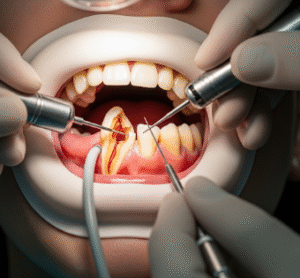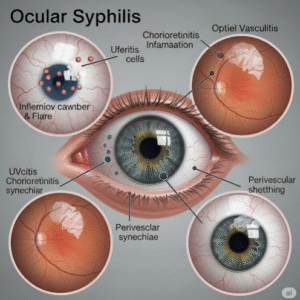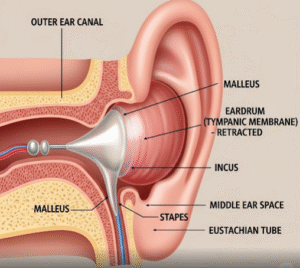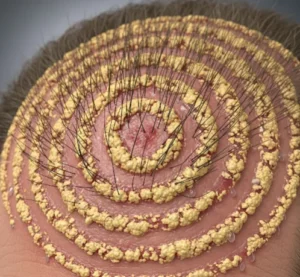Overview
Congenital heart disease (CHD) refers to structural abnormalities in the heart that are present at birth. Thanks to medical advances, many children with CHD now survive into adulthood, but they often require lifelong monitoring and treatment. Adults living with congenital heart disease may experience complications such as arrhythmias, heart failure, pulmonary hypertension, or valve disorders.
Globally, there are millions of adults with CHD, and their numbers are growing due to better survival rates in childhood. In South Korea, cutting-edge cardiology programs provide comprehensive management, from minimally invasive procedures to advanced heart surgeries, making it a leading destination for international patients.
What is Congenital Heart Disease in Adults?
Congenital heart disease in adults means that structural heart defects, originally present at birth, continue to impact heart function during adult life. Some defects are minor and require little intervention, while others are complex and demand lifelong care.
Common types of CHD seen in adults include:
- Atrial septal defect (ASD): A hole between the upper chambers of the heart.
- Ventricular septal defect (VSD): A hole between the lower chambers.
- Patent ductus arteriosus (PDA): A persistent connection between the aorta and pulmonary artery.
- Tetralogy of Fallot (TOF): A combination of four defects.
- Transposition of the great arteries (TGA): Major arteries are switched.
- Coarctation of the aorta: Narrowing of the main artery.
These conditions may have been corrected in childhood, but residual issues or complications often appear in adulthood.
Symptoms
Symptoms vary widely depending on the type and severity of the defect. Some adults may remain asymptomatic, while others experience life-altering complications.
Common symptoms include:
- Shortness of breath, especially during exertion
- Fatigue and weakness
- Irregular heartbeat (arrhythmias) or palpitations
- Swelling in ankles, feet, or abdomen (edema)
- Chest pain or pressure
- Dizziness or fainting spells (syncope)
- Bluish tint to skin, lips, or nails (cyanosis, in severe cases)
Severe symptoms may include:
- Difficulty exercising
- Signs of heart failure
- Sudden cardiac arrest (in rare cases)
Causes
The cause of congenital heart disease is usually related to abnormal heart development in the womb. While the precise reason for every case is not always clear, contributing factors include:
- Genetic mutations: Certain chromosomal abnormalities (e.g., Down syndrome, Turner syndrome).
- Family history: Having relatives with congenital heart disease.
- Maternal health during pregnancy: Diabetes, viral infections (like rubella), or certain medications.
- Environmental exposure: Alcohol, drugs, or smoking during pregnancy.
- Unknown factors: In many cases, the exact cause is never identified.
Risk Factors
Adults with congenital heart disease face a unique set of risks:
- History of complex CHD: Severe or uncorrected defects increase complications.
- Previous surgery: Scar tissue and artificial valves may cause long-term issues.
- Arrhythmias: Adults with CHD are more prone to irregular heart rhythms.
- Pulmonary hypertension: Increased pressure in the lungs can develop.
- Pregnancy: Women with CHD face higher risks during pregnancy.
- Infections: Prosthetic heart valves or structural abnormalities increase risk of endocarditis.
- Lifestyle factors: Smoking, poor diet, and lack of exercise can worsen outcomes.
Complications
Adults with congenital heart disease are at risk of multiple long-term complications:
- Heart failure: The heart may weaken over time.
- Arrhythmias: Irregular heartbeats, which can be life-threatening.
- Pulmonary hypertension: Damage to pulmonary arteries due to high blood pressure in the lungs.
- Stroke: Abnormal blood flow increases clot risk.
- Endocarditis: Infection of heart lining or valves.
- Reduced life expectancy: Without ongoing care, outcomes worsen significantly.
- Pregnancy complications: Increased risk for both mother and baby.
Prevention
Congenital heart disease cannot always be prevented since it develops during fetal growth. However, risk can be reduced through:
- Maternal care during pregnancy: Proper prenatal care, avoiding harmful substances.
- Vaccinations: Preventing maternal infections (e.g., rubella vaccine before pregnancy).
- Genetic counseling: For families with a history of congenital heart disease.
- Healthy lifestyle: Controlling diabetes, avoiding alcohol and smoking during pregnancy.
For adults already living with CHD, secondary prevention focuses on:
- Regular follow-ups with cardiologists.
- Lifestyle management (healthy diet, exercise, avoiding smoking).
- Preventive antibiotics for certain procedures (to avoid endocarditis).
- Careful planning of pregnancy with a heart specialist.
Treatment Options in Korea
South Korea is recognized globally for its advanced cardiology and cardiovascular surgery programs, offering some of the best outcomes for adults with congenital heart disease.
1. Diagnostic Services
- Echocardiography (2D & 3D): To evaluate structural defects.
- MRI and CT angiography: For detailed heart imaging.
- Electrocardiogram (ECG) & Holter monitoring: For arrhythmia detection.
- Cardiac catheterization: To assess pressures and guide treatment.
2. Medications
- To manage symptoms such as high blood pressure, heart failure, or arrhythmias.
- Anticoagulants may be prescribed to reduce clot risks.
3. Interventional Procedures (Minimally Invasive)
- Catheter-based repairs: Closing holes (ASD, VSD) with devices.
- Balloon angioplasty & stenting: To open narrowed vessels (e.g., coarctation of the aorta).
- Performed widely in South Korean hospitals with advanced imaging technology.
4. Surgical Options
- Corrective surgery: For complex defects like Tetralogy of Fallot.
- Valve repair/replacement: Using mechanical or biological valves.
- Heart transplant: For end-stage heart failure when other treatments fail.
5. Arrhythmia Management
- Pacemakers or implantable cardioverter defibrillators (ICDs).
- Catheter ablation for abnormal electrical pathways.
6. Lifestyle & Rehabilitation Programs
- Cardiac rehabilitation with tailored exercise and diet plans.
- Psychological counseling for coping with chronic illness.
- Special pregnancy care programs for women with CHD.
Why Korea is a top choice:
- World-class hospitals such as Asan Medical Center, Seoul National University Hospital, and Samsung Medical Center.
- Leading cardiothoracic surgeons with international training.
- Advanced robotic and minimally invasive heart surgeries.
- Integrated long-term follow-up care.
- Multilingual international patient services.
Conclusion
Congenital heart disease in adults is a lifelong condition requiring specialized, ongoing care. While many patients live healthy, fulfilling lives, complications such as arrhythmias, heart failure, and pulmonary hypertension remain concerns. Early diagnosis, continuous monitoring, and advanced interventions are key to improving outcomes.
South Korea offers some of the most advanced and affordable cardiac care in the world, making it a global hub for patients seeking expert treatment for congenital heart disease. With comprehensive diagnostic tools, surgical expertise, and rehabilitation programs, Korean hospitals provide world-class care and long-term support for adults living with CHD.













